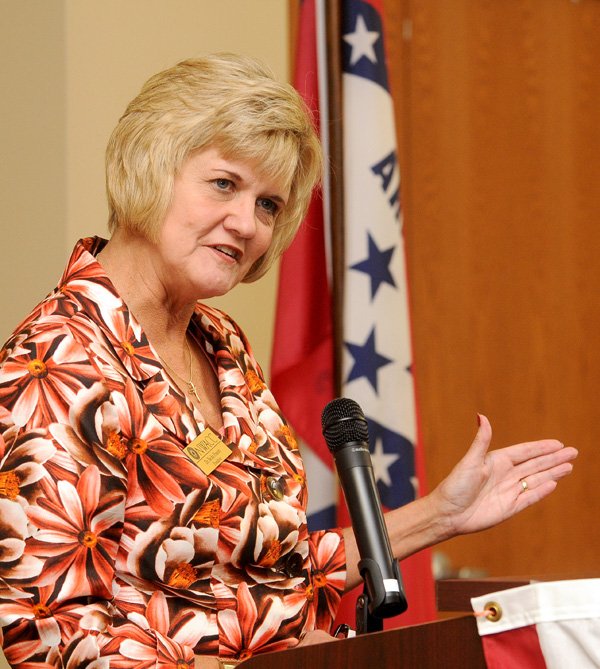BENTONVILLE — NorthWest Arkansas Community College will be in charge of a $14.7 million federal grant aimed at improving career education throughout the state, college and state officials announced Monday.
“This is a tremendous day for NWACC and all two-year colleges in Arkansas — and more specifically for the students we serve,” said Becky Paneitz, college president, in an email.
The grant is part of the Trade Adjustment Assistance Community College and Career Training Program, according to a news release from the U.S. Department of Labor.
Brandi Hinkle, a spokeswoman for the Arkansas Department of Higher Education, said the grant will support a range of efforts, from curriculum changes to improved advisement at all of the state’s 22 two-year colleges.
The project will include restructuring of 104 certificate programs and 42 associate degree programs that are most likely to lead to jobs in health care and advanced manufacturing, Hinkle said.
The program is called the Path to Accelerated Completion and Employment Initiative.
Hinkle said she did not know how the money will be divided between the colleges.
The restructuring is aimed at reducing the time required to complete a program, decreasing remediation rates and increasing retention, Hinkle said.
AT A GLANCE
Project Description
Path To Accelerated Completion and Employment Initiative
Using three evidence-based strategies, the project’s goal is to accelerate program completions by 15 percent by restructuring 104 certificate and 42 associate degree programs by the end of the grant period.
Working collaboratively, all of Arkansas’s 22 two-year colleges will: transform developmental education using approaches to accelerate student advancement; streamline certificate and degree pathways; restructure certificate and degree programs to reduce time-to-completion and credit-to-completion; enhance student support technology and systems; and transform student advisement systems as a means for reducing time-to-completion and unnecessary credit accumulation and for improving job placement.
Source: U.S. Department Of Labor
Changes could include removing unnecessary requirements or adding new requirements, she said.
For example, she said it will be important to make sure the requirements for health care and manufacturing degrees and certificates have kept up with changes in those fields.
Hinkle said reviews will be performed with the input of employers in health care and manufacturing.
Business partners in the career training grant include L’Oreal USA, Tyson Foods, North Arkansas Regional Medical Center and Baxter Regional Medical, according to a fact sheet for the grant.
Hinkle said changes will probably start taking effect within two or three years.
Changes to advisement systems will be aimed at steering students into fields in which they are likely to land jobs, Hinkle said.
“We will not only provide more educational opportunities to students throughout the state, but provide them with opportunities to work in specialty areas where they are most likely to find jobs,” Paneitz said.
Charles Welch is president of the Arkansas State University System, which has three two-year colleges involved in the grant.
“It’s great news for our students and the opportunities they’ll have,” he said. “It’s great news for our business and industry partners.”
Welch said changes from the grant could reduce the bureaucracy students have to deal with.

